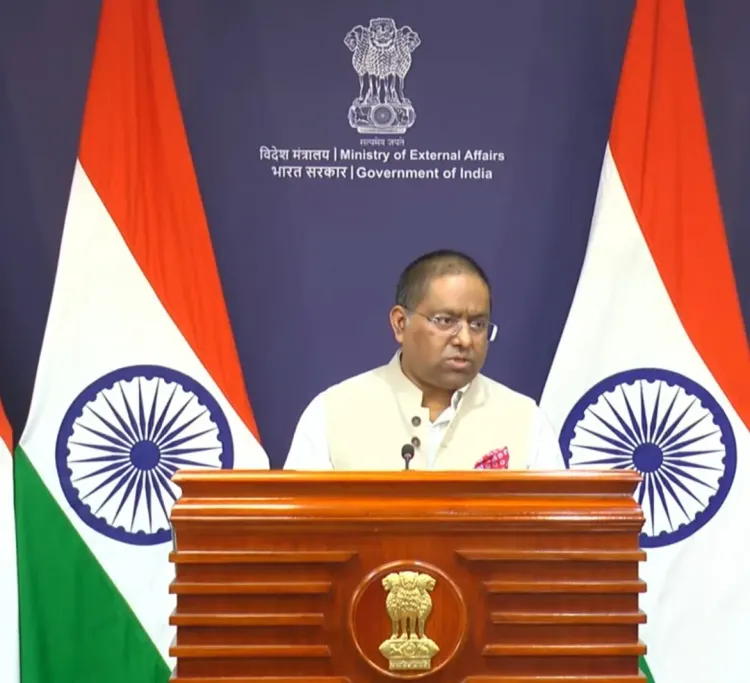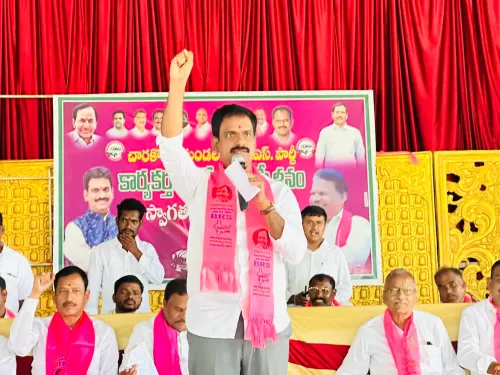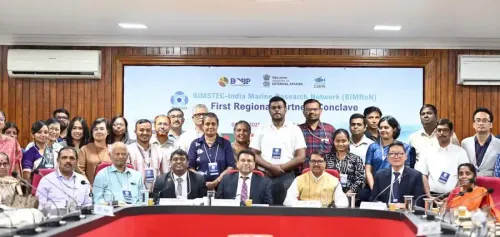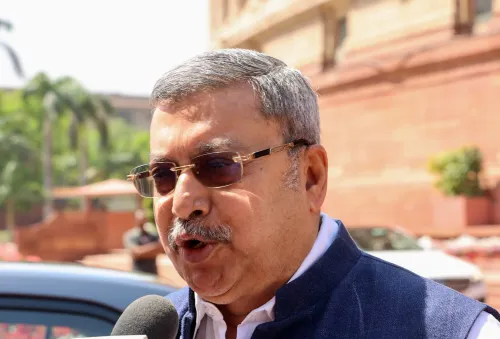Will the Indus Treaty Stay in Abeyance Until Pakistan Stops Supporting Cross-Border Terrorism?

Synopsis
Key Takeaways
- Indus Waters Treaty remains suspended due to terrorism concerns.
- India insists on bilateral engagement with Pakistan.
- Pakistan must renounce support for cross-border terrorism for negotiations.
- Saudi Arabia proposed as a potential neutral venue for talks.
- Focus areas include Kashmir, water rights, and trade.
New Delhi, May 22 (NationPress) On Thursday, India reaffirmed that any engagement with Pakistan must be conducted bilaterally. The Ministry of External Affairs (MEA) emphasized that the Indus Waters Treaty (IWT) will remain in abeyance until Pakistan credibly and irrevocably renounces its backing of cross-border terrorism.
MEA spokesperson Randhir Jaiswal stated during a weekly media briefing, "Any India-Pakistan engagement has to be bilateral. I would like to remind you that talks and terror cannot coexist. Regarding terrorism, we are open to discussing the extradition of notable terrorists previously listed for Pakistan's attention."
He further clarified, "Any bilateral discussions concerning Jammu and Kashmir will only address the withdrawal of illegally occupied Indian territory by Pakistan. Once again, I stress that the Indus Waters Treaty will be suspended until Pakistan convincingly and permanently abandons its support for cross-border terrorism. As our Prime Minister has articulated, water and blood cannot flow together, and trade cannot coexist with terror."
This strong stance from India followed a proposal from Pakistan Prime Minister Shehbaz Sharif, who suggested Saudi Arabia as a neutral site for India-Pakistan discussions, with the United States potentially mediating.
In Islamabad, Sharif mentioned that any negotiations would occur at the National Security Advisors (NSA) level and focus on Kashmir, water rights, terrorism, and trade.
Shehbaz noted that tensions between India and Pakistan are slowly de-escalating since military operations on both sides began to communicate.
"If discussions occur between both nations, the National Security Advisor will represent Pakistan. Saudi Arabia could serve as a neutral venue, with the US facilitating. However, India has yet to accept any neutral site for dialogue," he remarked.
Sharif added, "The agenda will include key topics such as Kashmir, water, trade, and terrorism during Pakistan-India discussions."
Earlier in the day, Prime Minister Narendra Modi reiterated India's uncompromising position against terrorism, asserting that there will be no dialogue or trade with Islamabad unless it relinquishes its illegal occupation of Kashmir.
"Any discussions will revolve around Pakistan-occupied Kashmir (PoK). If Pakistan continues to export terrorism, it will find itself begging for every penny, and it won't receive even a drop of Indian water," he stated at a rally in Bikaner, Rajasthan.
PM Modi also warned, "Playing with the blood of Indians will come at a high cost for Pakistan."









